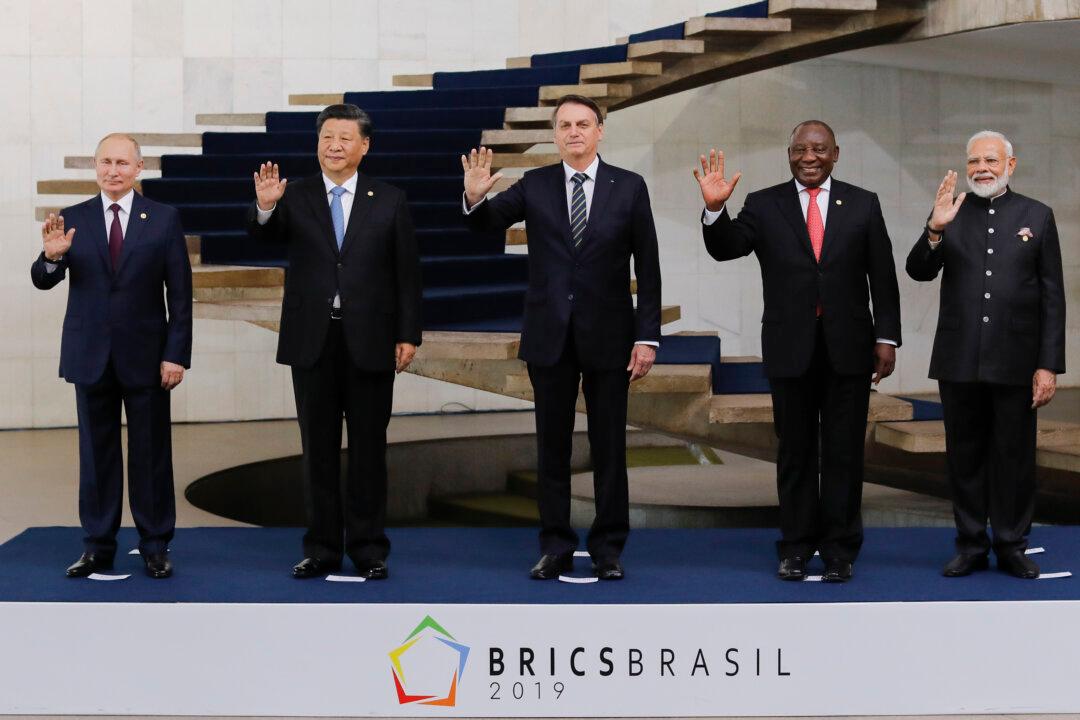Beijing and Moscow have announced their intention to boost ties between the BRICS nations—a five-member alliance that includes their respective countries as well as India, Brazil, and South Africa.
China is seeking to promote financial and fiscal cooperation within the alliance, Chinese Minister of Finance Liu Kun said at the first BRICS Finance Ministers and Central Bank Governors Meeting on April 8. He called on BRICS members to strengthen macro-policy coordination to boost the global economy. China will share information and conduct experience exchanges in infrastructure investment among the members.





